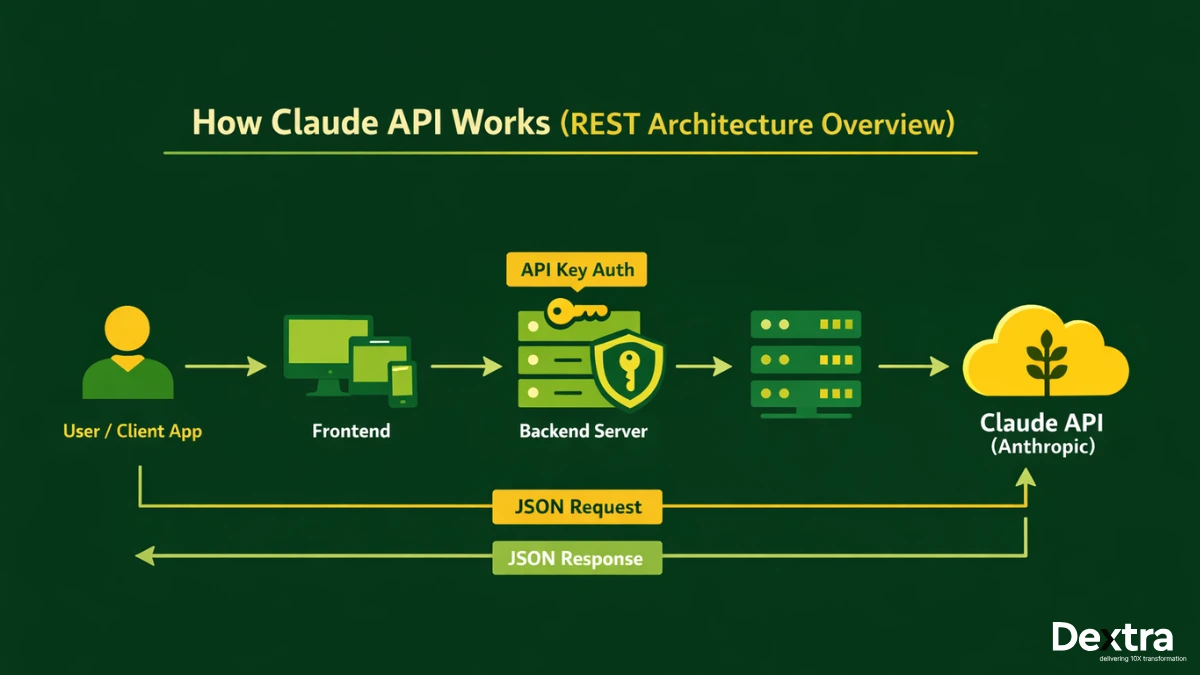Hiring an offshore developer or development company can be a good decision for businesses trying to save money while producing high-quality work. Offshore developers are qualified experts who work remotely from other countries and specialize in certain aspects of software development.
When hiring offshore, it is important to carefully define your project requirements and thoroughly study applicants or firms. Let’s review some steps you can take to find the ideal offshore development partner to help your company grow quickly.
What Is Offshore Development?
Offshore development means employing a company or workers from another country to complete jobs or projects. For example, a US corporation can engage an Indian software developer to create a new app. This is done to save money or to get specific talents that are not available locally.
The offshore team works from their nation while assisting the company with its projects. Although this can be cost-efficient, it also requires strong communication and management to ensure that the work meets the company’s expectations.
Who Are Offshore Developers?
Offshore developers are people or groups hired from outside a company’s native nation to work on technological projects. They could be software engineers, programmers, designers, or IT specialists. These developers operate remotely from areas with cheaper labor expenses.
Companies hire dedicated offshore developers to save money and easily increase their offshore development teams. However, effective offshore development requires clear communication and trust because developers can be in different time zones and cultures. Despite these limitations, many businesses consider offshore development an effective option for reaching their technological objectives.
10 Major Benefits of Hiring Offshore Developers for Startups
Startups do not initially have huge capital for investments. That’s why they are the most in need of cost-effective resources that can keep their services top-notch. So, here are some great benefits of hiring offshore developers for startups:
Access to Global Talent
Hiring Offshore development gives access to a larger number of experienced workers with specific knowledge. Startups can access worldwide talent without worrying about geography, which makes sure that they find the best engineers for their needs. This can be especially useful for companies that need specialized talents or advanced technological competence to keep their edge in the industry.
Scalability
Offshore developer teams can scale resources up or down depending on project requirements. Startups can instantly modify their workforce size without the long-term commitment of hiring full-time local employees. This agility assists in managing workload fluctuations and adapting to changing project requirements.
Reduced Time-To-Market
Startups can shorten development times by collaborating with offshore developers. Due to time zone variations, these developers can work around the clock and accelerate project completion. Faster development cycles help entrepreneurs to bring goods to market more quickly and remain ahead of the competition.
Focus on the Core Business
Outsourcing offshore development chores helps entrepreneurs focus on their core business activities. Instead of overseeing a huge in-house development team, founders can concentrate on strategic issues such as business development and growth. This specialty helps simplify processes and propel the startup’s mission forward.
Flexible and Adaptable
Offshore teams have flexibility in working hours and project management techniques. Startups can customize their strategy to the team’s talents and project requirements. This adaptability helps manage different development stages and respond to changing project requirements.
Access to Advanced Technologies
Offshore developers have experience with technology and processes. Startups can benefit from their experience with the most recent tools and methods without investing in costly training or resources locally. This access guarantees that companies keep up with technology changes.
Enhanced Innovation
Big teams with different cultural and professional backgrounds can give new ideas and unique solutions. Offshore developers can propose novel ways and ideas that local teams could not think of. This diversity can result in more innovative and effective issue resolution.
Reduced Infrastructure Costs
Outsourcing development work avoids investing in physical infrastructure like office space and equipment. Offshore teams operate remotely, lowering the overhead expenses associated with creating and maintaining a local development office. So, instead of an in-house team, startups can invest in other important business areas and strategy building.
Cost Savings
Hiring Offshore developers can result in significant cost savings compared to recruiting locally. Offshore locations feature cheaper labor expenses, which allows companies to get high-quality services for a fraction of the price. This helps startups direct funding into other important areas, such as marketing or product development.
How to Hire Offshore Software Developers?
Hiring offshore software developers is not as difficult as it sounds, but here are the right steps to do it:
- Skill Assessment: Check the needed skills, technologies, and money.
- Defining Project Requirements: Outline the project’s scope and timetable.
- Search Locations: Check popular regions like Eastern Europe, South Asia, and Latin America.
- Stay Aware of Time Zones: Monitor time zones and cultural compatibility.
- Choose a Model: Decide whether to collaborate with an agency or use freelancers.
- Checking Profiles: Review portfolios and conduct interviews.
- Communicate Clearly: Create regular updates and clear communication lines.
- Create Collaboration: Prioritize transparency and collaboration to ensure project success.
Best Locations to Hire an Offshore Development Team
Here are the 10 best countries where you could hire an offshore developer:
India
India is a popular place for hiring offshore developers because it has many skilled people, particularly in software development and IT services. The country has extremely competitive rates, and many developers are fluent in English, which makes collaboration easier.
The time zone difference between India and Western countries allows for round-the-clock work. By contacting Indian developers, you can easily create an offshore software development team.
Ukraine
Ukraine is well-known for its highly educated technical expertise and strong engineering culture. It has a combination of quality and affordability in software development. Ukraine is an appealing choice for European offshore outsourcing due to its growing number of tech companies and engineers.
Philippines
The Philippines is another great location for entrepreneurs seeking low-cost offshore development, notably in web and app development. English is widely spoken here, and the country has a good outsourcing economy. Filipino developers are known for their agility and outstanding communication abilities, which make them ideal for remote collaboration.
Brazil
Brazil has growing tech expertise and competitive pricing in the offshore development industry. Because of its more convenient time zone alignment, Brazil is becoming a favored destination for North American startups. Brazil’s developers are well-known for their skills in software engineering and DevOps.
Vietnam
Vietnam is rising as a low-cost offshore development destination, particularly for small and medium-sized companies. The country’s digital industry is expanding, and Vietnamese workers excel in mobile app development and the blockchain fields. The decreased labor expenses make it an appealing choice.
Mexico
Mexico is a great place for North American entrepreneurs to find nearshore development services. The country is close to the United States and has similar time zones and cultural alignment that makes collaboration easier. Mexico has many people with skills in software development, particularly in mobile apps and IT services.
Argentina
Argentina is well-known for its lively technology sector and talented software developers. The country offers inexpensive rates and values innovation and creativity in development projects. Argentina’s time zone is comparable to that of the United States, which makes it a desirable destination for North American startups.
Bangladesh
Bangladesh is becoming famous as an emerging offshore development hub due to its rapidly expanding IT skill pool and low prices. The country focuses on web development and digital services. Bangladesh offers cost-effective solutions for startups, with the only downside being English proficiency.
Challenges and Considerations of Hiring an Offshore Developer
Now that you know where to hire offshore developers, let’s talk about some things to look out for when doing so:
Communication Barriers
Language and communication barriers are among the most important challenges offshore developers face. Miscommunication can cause project delays and misconceptions. Ensure the developer is fluent in English and create clear communication channels early on.
Time Zone Differences
Working across time zones can cause delays and coordination challenges. It is important to know whether your offshore developers can cooperate with your working hours for real-time collaboration. Also, check how time changes can affect deadlines and feedback loops.
Quality of Work
Not every offshore developer has the same degree of quality. Before recruiting, you should check their previous projects and request code samples. Quality assurance should also be included in the process, along with regular evaluations to ensure the code matches your expectations.
Cultural Differences
Cultural differences can influence work principles and problem-solving strategies. Be aware of these differences and ensure that you and your offshore staff have a common understanding of project objectives and expectations. Mutual respect and good communication can help bridge cultural differences.
Legal and Security Concerns
Hiring overseas developer for startups can be a legal and security problem, as can intellectual property protection and data compliance. Before recruiting, make sure that legal arrangements such as non-disclosure agreements (NDAs) and contracts are in place to protect your company’s data and sensitive information.
Hidden Costs
While offshore development can seem less expensive at first glance, project delays and the need for additional control can result in unknown expenses. Check for hidden costs, such as travel to in-person meetings or additional management personnel to track progress.
Project Management Challenges
Managing an offshore team requires excellent project management abilities. Be prepared to face problems in task coordination and accountability. Keep things on track by using project management tools and creating specific timelines.
Team Integration
Combining offshore developers into your existing team can be challenging, especially if they work remotely. To have a good workflow, offshore developers must feel like they are a part of the team, so include them in important meetings and decision-making processes.
Long-Term Availability
Offshore developers can work on numerous projects simultaneously, affecting their availability. Before recruiting, check their long-term commitment to your project and ensure they will not be overworked. To avoid future delays, discuss availability and timetables up front.
Technical Expertise
Check that the offshore developers you choose have the appropriate technical expertise for your project. Look at their qualifications to keep in check that they are familiar with the tools and technologies required for your project. Conduct technical interviews or exams to learn about their ability.
In-House Hiring vs Outsourced Offshore Hiring
Are you aware of the difference between in-house hiring and offshore hiring?
Hiring In-House
In-house hiring is the process of recruiting workers who will work directly for a firm at its location. These people are core team members and help with the business’s day-to-day operations. In-house hiring has many benefits, like improved communication and a stronger company culture.
As the team is in the same location, there are fewer barriers to collaboration, which can boost productivity and project success. Additionally, in-house staff are more loyal and committed to the organization, making it easier to maintain consistent operations.
Hiring Offshore Developers
Outsourced offshore recruiting means employing foreign developers or teams from several places to complete certain projects. This technique is used to save money and get access to specific expertise.
Overseas developers for startups and organizations can help grow the workforce up or down based on project demands without the cost of full-time staff. Offshore developers operate remotely, which can help save on office space and other infrastructure expenditures.
Conclusion
Hiring an offshore developer or development company requires careful planning and attention. You can start by identifying your project’s requirements, such as dates and technical specifications.
Check prospective offshore destinations to find a country that has the ideal combination of cost, skill level, and language competency. Always look for developers or companies with impressive portfolios and good experience in your sector or technology.
FAQs
Q. Is Offshore Outsourcing Cheaper?
Offshore outsourcing is considerably cheaper. However, the hourly rate you pay is only one aspect of knowing the true cost of outsourcing.
Q. What Are the Disadvantages of Offshore Outsourcing?
One of the most important disadvantages of offshore is time zone variations. Many offshore firms operate within a 5—to 12-hour time difference from their clients, so work schedules must be changed to accommodate your offshore partner.
Q. Who Benefits from Offshore Outsourcing?
This approach assists companies of all sizes by providing healthy expansion strategies that create competitiveness and improved market share. Small enterprises can also increase their chances of getting venture funding by expanding their business runway through offshore outsourcing.








